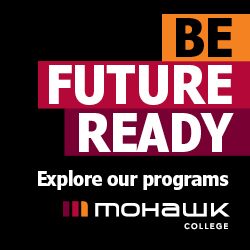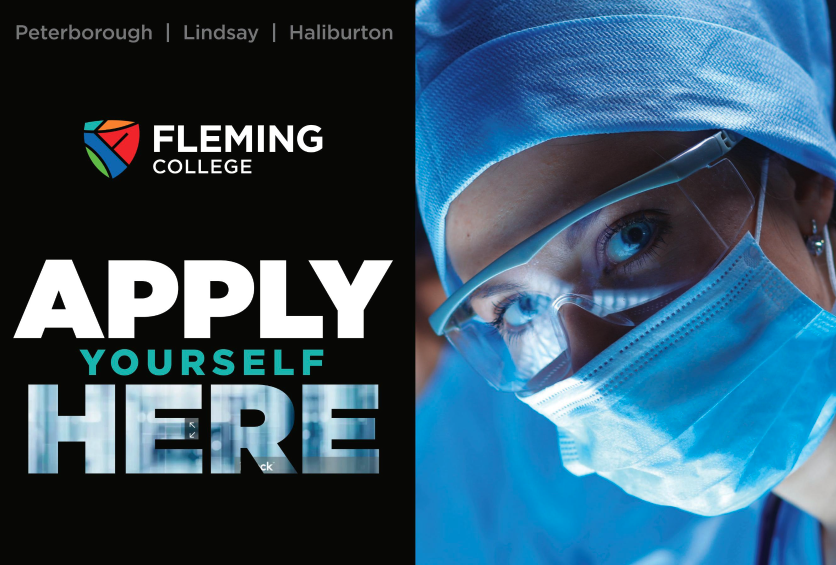Choosing an educational path after high school is challenging, exciting, and stressful for many students and their families. Some students know exactly what they want to pursue as a career, which post-secondary program will get them there and which college or university is right for them. But many more are less certain.
The choices can seem overwhelming. There are 24 colleges in Ontario alone, offering more than 900 programs that lead to diplomas, degrees and post-secondary certificates.
So how do you go about making an effective choice?
Start your research early.
This is a big and costly decision. Start your research early so that you are well prepared and confident by the time you have to apply.
Ryan McGarvey, a 17-year-old Grade 12 student in Oshawa, has been researching his options since the beginning of Grade 11. He is interested in studying musical theatre and has narrowed his choices down to Sheridan College and several Greater Toronto Area universities. His mom Renee McGarvey is doing lots of research online and the family visited open houses last year.
“We are keeping an eye out for open houses and meetings and I think some school representatives are coming in for presentations at my school,” said Ryan. “We will also go to the college fair this year. I will attend everything I can.”
While Renee says she’s “completely stressed” about making a choice, Ryan says, “I’m happy we started our research when we did because we’ve got a lot more to do.”
Talk to teachers and guidance counsellors.
If you don’t have a clear idea of your aptitude or interests, talk to your teachers and guidance counsellors. Take an aptitude test that can point you in a direction. Talk to anyone you can – your relatives, your parents’ friends, your friends’ parents, neighbours, for instance – about their jobs. Research the jobs that are out there, what demand is like, and what they provide in terms of income, working conditions and lifestyle.
If you have a potential career path in mind, talk to people in that field to see if it may be right for you. Then research the college programs that lead to that job.
“If you don’t do your homework and research and realize what a program is all about, it makes the climb steeper,” said Kelvin Lee, a recruiter at Mohawk College in Hamilton. He tells students to visualize themselves in their program choice and imagine themselves doing that job.
“We had two students ask about nursing, but 20 minutes into the talk they said they don’t like touching people and they don’t like blood. Then nursing isn’t right for them. It’s important to figure that out.”
Book a tour and visit the campus.
There are many fantastic options in Ontario’s college system, which is celebrating its 50 anniversary under the theme The Start of Something Amazing.
But no student should make a choice of a college without first visiting the campus, says Lee. Online research, talking to recruiters and inquiring with other students is all important, but it doesn’t replace walking around the campus, looking at classrooms, labs and other facilities or exploring the community around the college, says Lee.
“We are still stunned at how many students don’t visit and who literally throw a dart. Then they are surprised by the size of their classes or how big the campus is. You have to go in with your eyes wide open,” he said. “And you can’t get the full experience without visiting.”
Take advantage of open houses, college fairs and other resources.
The Ontario College Information Fair, Oct. 24 and 25 at the Enercare Centre in Toronto (www.ocif.ca), allows high school students and their families to meet faculty, staff and students from all 24 colleges under one roof. Each college will provide information sessions, potential students can learn about programs, admission requirements, and student life. There are also workshops on paying for college, career planning, degrees offered by colleges, and how to apply.
If you can’t make it to the OCIF, the Ontario College Information Program (CIP) is the official “Colleges on Tour” event. Throughout September and October, a group of college representatives will be crossing the province together for five weeks, stopping at each college. The schedule is available at: www.ocif.ca/college-information-program-2017.
Individual colleges also offer open houses and program tours. Many, if not all, will allow students to sit in on classes or even live in residence for a weekend when school is out. Talk to faculty and students when you are there.
Use the resources available at ontariocolleges.ca.
Keep your options open.
Colleges and universities are increasing working collaboratively, with hands-on college courses added after a university degree or college diplomas leading directly to university studies. For instance, the number of university graduates enrolled in college has increased more than 40 per cent over the past five years.
“There are many connections now between college and university. Smart students and parents consider both,” said Lee, who has been a recruiter for 13 years. One ongoing challenge for the college system is that most high school teachers and guidance counsellors have only studied at the university level, so may not be fully aware of all that college has to offer.
Kasia Miecznikowski enrolled in a humanities program at McMaster University, hoping to pursue multimedia in her second year. “I thought university was the choice for me because my grades were high. No one really told me about college. I didn’t consider it,” she said.
”Towards the end of my first year, I realized that courses that had nothing to do with the second-year program I wanted to take would determine whether I got into the program… I was doing all these academic essays and I didn’t feel I was learning a lot. I wanted to be hands-on.”
So Miecznikowski is now happily taking broadcast journalism at Mohawk College.
“I feel so good about my choice. I will be learning by doing and the faculty are people who have worked in the field I want to pursue. My advice to high school students is to make sure you really know your options.”
Is it better to wait a year?
If you truly can’t make a decision and feel overwhelmed by having to try, it may be best to wait a year and get additional high school credits or work to save up for college.
Maddy Patterson, who is studying event management at George Brown College, suggests that volunteering can help young people find a career path that’s right for them. “I took a year off out of high school because I was having trouble deciding what I wanted to do. I did a lot of volunteering at sports events because I was considering sports management. I didn’t know about event planning until I did that.”
Patterson then explored her school choices and chose George Brown based on student reviews and its internship program.
“I 100 per cent recommend volunteering to figure out what you don’t like and what you do like. It narrows your path and it helps with future job opportunities.”
Lee says some students find it better to come to college to test the waters in a general arts, science or skilled trades program and then narrow their focus depending on what appeals to them. Sometimes they find the program for them by meeting other students or watching them do class projects out on the campus.
Also keep in mind that there are multiple programs with January starts. That buys some more time and the volume of applications is lower for that time.









